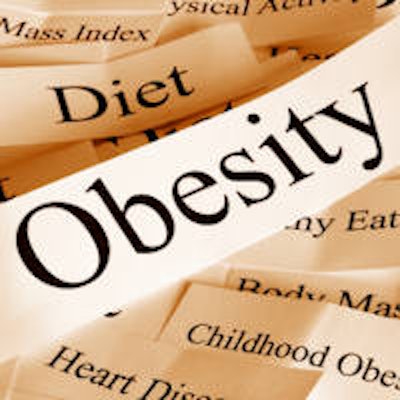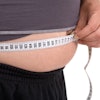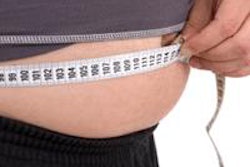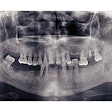
A new study is getting widespread attention for its look at the way obese parents view the health of their obese children.
As many as one-third of obese parents who had obese children in the study failed to recognize their child's condition as a health problem, according the results published by the Journal of the Academy of Nutrition and Dietetics (June 20, 2014). The results create a conundrum for health practitioners of all kinds.
 Kyung Rhee, MD, assistant professor of pediatrics and researcher, Division of Child Development and Community Health, University of California, San Diego School of Medicine.
Kyung Rhee, MD, assistant professor of pediatrics and researcher, Division of Child Development and Community Health, University of California, San Diego School of Medicine."Whether we like it or not, we may have to start addressing it," said lead study author Kyung Rhee, MD, said during an interview with DrBicuspid.com. "It was interesting that if parents thought that their weight was a health problem, then they were less likely to be ready to make changes to their child's diet. That was our biggest finding."
Dr. Rhee is currently an assistant professor of pediatrics and a researcher on childhood obesity in the division of child development and community health at the University of California, San Diego School of Medicine, as well as a pediatric hospitalist at Rady Children's Hospital. During the study, she was an assistant professor of pediatrics at the Warren Alpert Medical School of Brown University in Providence, RI.
Consequently, as a result of the study findings, parents may need more support from their healthcare providers to guide them toward a healthier lifestyle. But who should be providing that support?
"As pediatricians, we don't necessarily go into the parents' health and well-being, their history of dieting or other things like that," Dr. Rhee noted. "I wonder if it's something that we need to address more. A lot of these parents are overweight as well and have probably gone through issues with trying to lose weight themselves, and I think if parents have a hard time with their own weight, they're probably going to have a hard time with their child's weight. And so we need to do more discussion with the parents about their own issues as well."
Obesity has been shown to have an impact on overall health, and oral health is no exception. While it has not been linked to caries in kids, other studies have linked it to earlier eruption of primary and permanent teeth and higher risks of periodontal disease. Previous studies have found that dentists are interested in helping patients with serious weight issues, yet they are afraid of offending them and appearing judgmental.
In the new study, the researchers surveyed 202 parents whose children were enrolled in an obesity clinic at the Hasbro Children's Hospital in Providence, RI, in 2008 and 2009. Their goal was to ascertain which parents were ready to make changes in their lives in terms of their child's dietary habits and levels of physical activity. The children ranged in age from 5 to 20 years old, with an average age of 13.8 years. More than two-thirds were female, and 94% were clinically classified as obese.
"This was not just your general pediatric primary care practice; this was an obesity clinic," Dr. Rhee said. "All of these families were there because a pediatrician said, 'Your child is overweight. I think you need to go here.' "
“They think their child's health is pretty good.”
In fact, 31% of parents perceived their child's health as excellent or very good, and 28% did not perceive their child's weight as a health concern.
"They don't agree. Basically, they think their child's health is pretty good," Dr. Rhee explained. "Everybody's been asking about that and ... I have no good answer as to why that is."
Parents stated that they had a greater interest in helping their child eat a healthy diet than encouraging the pediatrician-recommended hour of daily physical activity. Specifically, 61% of parents reported that they were improving their child's eating habits by limiting junk food and adding more fruits and vegetables to their diet. But only 41% said they were increasing their child's involvement in active play, sports, dancing, or even walking.
"Because this was a survey, I don't know if doctors were talking about physical activity as much as dietary changes," Dr. Rhee noted. "In general, we talk about the dietary changes more frequently than physical activity, but we didn't delve into that."
Parents who had talked with their primary care physician about healthy eating strategies were more likely to be in the "action stage of change" with their child's diet. By contrast, parents who viewed their own battle with weight as a health concern were less likely to be addressing their child's eating habits.
In terms of physical activity, researchers do not know why parents appear to underemphasize its role in good health, but the finding is consistent with other recent studies that suggest youth in the U.S. are largely out of shape and sedentary, replacing playtime with "screen time," the university explained in a press release.
Poverty also may play a role in how much children move on a daily basis, as parents with annual incomes of less than $40,000 were also less likely to be actively engaged in ensuring their child got regular exercise.
"If you're of higher income, parents were more likely to make physical activity changes with their children," Dr. Rhee said. "It kind of makes sense to me, because it feels like an issue of access. Those with more income may live in safer neighborhoods or feel safer, and have more access to sports facilities and activities."
The researchers noted that education, income, and race/ethnicity had no statistically significant bearing on a parent's likelihood of making dietary changes for their child.



















